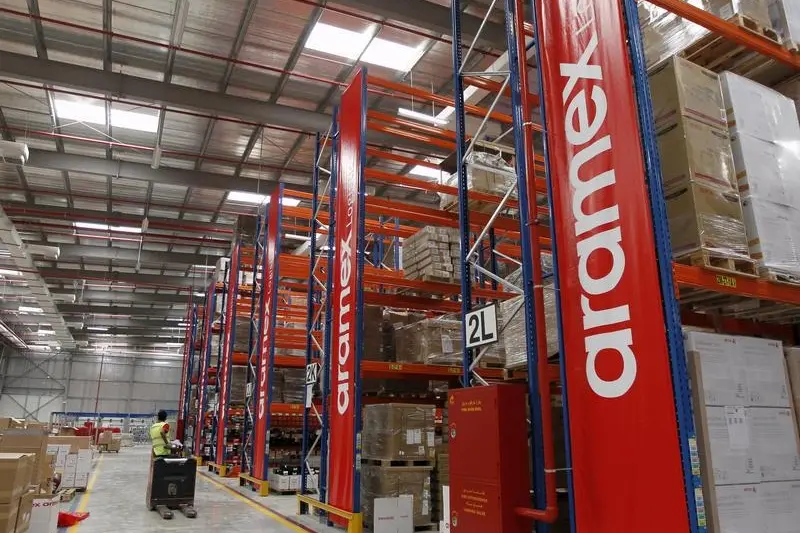PHOTO
The logistics industry now looks “encouraging” as the global economy recovers, but it is up for consolidation this year, according to a top official of Dubai-based courier Aramex.
“We anticipate a consolidation of market participants, creating stronger, more efficient, and technology-powered logistics service providers that are better able to offer customised solutions,” Mohamed Juma Alshamsi, chairman of Aramex, said Wednesday.
Last year, Aramex made ADQ its biggest shareholder after selling a 22 percent stake in the company to the Abu Dhabi-backed holding firm.
The company reported on Wednesday that its net profit for the full year 2020 declined by 42.7 percent to 285 million ($77.6 million) amid a higher operating cost environment.
However, revenue increased by 9 percent year-on-year to 5.5 billion dirhams. The company’s fourth-quarter 2020 revenue also went up by 13 percent compared to a year earlier, marking the highest fourth quarter revenue on record.
Aramex maintained that it managed to end 2020 on a strong footing, and that it looks to further strengthen its position in the market in 2021 through various initiatives, including chartering its own flights from the UAE capital to neighbouring states in the Gulf Cooperation Council (GCC) region.
Higher expenditures
Aramex pointed out that higher outgoings related to COVID-19 had weighed on the company’s finances. Last year, the company had to deal with an “unexpected increase” in costs associated with long-distance transportation, as well as expenditures for its staff’s personal protective equipment, as well as sanitisation of facilities and fleet.
And, as e-commerce activity accelerated, the company had to scale last-mile operations to accommodate the surge in demand for express shipping.
“These higher expenditures ultimately weighed on [the] full-year 2020 EBITDA margins, which came in at 13.8 percent, down from 18.2 percent in [2019],” Aramex said in a statement to the Dubai Financial Market.
Ah Shamsi pointed out that, despite a challenging year, the company showed its operational resilience and agility to respond to “fast-changing operational conditions”.
Optimistic
He said the future still looks optimistic for the industry in general and that the company aims to further strengthen its leadership in the market.
“As the global economy recovers from the pandemic and the global vaccination drive gathers pace, we are optimistic about the future of our industry. Demand-side fundamentals are encouraging as more and more businesses will depend on us to move and deliver shipments globally and domestically,” said Al Shamsi.
“We look to further strengthen our leadership position in our core markets while continuing to make inroads into servicing industries that have high volume and growing demand, with the intention of creating greater value for our shareholders and other stakeholders alike,” he continued.
Thomas Kipp, chief operating officer at Aramex, said the company managed to end the year “on a strong footing”.
“In Q4, we handled a record volume in Express shipments and witnessed a strong rebound in volumes in our International Express from the Q2 2020 lows. We also expanded our operations to handle crucial and temperature-sensitive shipments from both the healthcare and FMCG segments,” he said.
However, due to constrained freight capacity and higher overall line haul costs, Kipp said there was a significant increase in the cost per kilo of shipment.
“This is why we are looking at ways to redesign our line haul network including chartering our own flights on certain routes,” he said.
In late 2020, Aramex started expanding operations in one of its core markets in Abu Dhabi. “As of Q1 2021, we will begin chartering our own flights from Abu Dhabi to other GCC markets,” he added.
(Reporting by Cleofe Maceda; editing by Seban Scaria)
Disclaimer: This article is provided for informational purposes only. The content does not provide tax, legal or investment advice or opinion regarding the suitability, value or profitability of any particular security, portfolio or investment strategy. Read our full disclaimer policy here.
© ZAWYA 2021





















